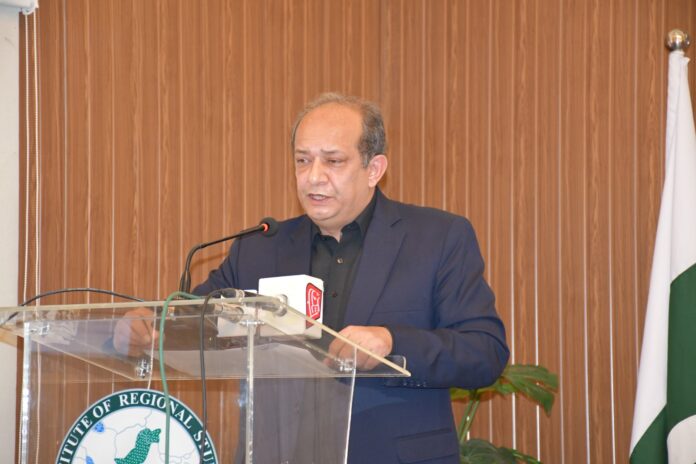ISLAMABAD, Nov 19 (APP):Chief Commissioner for Afghan Refugees (CCAR) at the Ministry of States and Frontier Regions (SAFRON) Muhammad Abbas Kh
an on Tuesday said the Govern
ment of Pakistan should host an international multilateral stake-holders’ conference aimed at addressing the challenges related to the voluntary repatriation and third-country resettle
ment of Af
ghan refugees.
He said that the main objective of the conference should be to encourage the Western countries to increase their quotas and expedite the process for admitting Afghan applicants into their countries from Pakistan.
He was speaking at a seminar titled “Challenges and Opportunities in Repatriation and Resettle
ment of Afghan Refugees” organized by the Institute of Regional Studies (IRS), said a press release.
Khan underscored the importance of international burden-sharing, urging global stakeholders to enhance resettle
ment opportunities for Afghan citizens on Pakistani soil.
The Chief Commissioner shared that there were around 600,000 Af
ghan resettlement applicants registered with the United Nations High Commissioner for Refugees (UNHCR) but that UNHCR’s quota for resettlement applications for the year was only 8,000. This, he maintained, was very unrealistic.
Khan, highlighted the immense challenges associated with repatriating Af
ghan refugees. Forced displacement, he noted, was a cross-cutting issue, encompassing social, political, economic, and security dimensions and increasingly intersecting with climate change. He added that Afghanistan’s fragile absorption capacity and limited infrastructure made reintegration of the returning Afghan citize
ns a challenging proposition.
He further stressed the importance of addressing psychosocial adjustment challenges and called for efforts to create a secure and investment-friendly environment in Afghanistan to support sustainable reintegration.
The Chief Commissioner shared that Pakistan had repatriated over 4 million Af
ghan refugees since 2002 and argued that most of the refugee population of 2024 was born and raised in Pakistan and were dependent on Pakistan for economic, health, and educational services.
He further stated that Afghanistan capacity to absorb large numbers of refugees was highly limited. Despite these hurdles, Khan expressed hope that the refugees, 70 per cent of whom are under the age of 30, had the potential to contribute significantly to Afghanistan’s reconstruction.
Highlighting Pakistan’s contributions to hosting millions of Af
ghan refugees over decades, the CCAR underscored the peculiar characteristics of Pakistan’s Af
ghan refugee situation. He called for a balanced approach towards the subject of Af
ghan refugees grounded in up-to-date and reliable facts and figures rather than misplaced perceptions. “The reality lies somewhere between perceptions and data,” he remarked.
President IRS Ambassador Jauhar Saleem called for a coordinated international response in consultation with the Govern
ment of Pakistan to streamline the resettlement process and provide adequate support for Af
ghan refugees transitioning to new lives in Western countries.
The seminar concluded with recommendations, including strengthening voluntary repatriation programs, fostering global collaboration, and investing in host communities. Participants also called for efforts to ensure Afghanistan becomes more secure and investment-friendly, enabling it to absorb returning refugees effectively.
